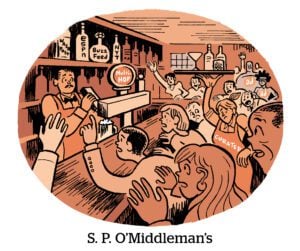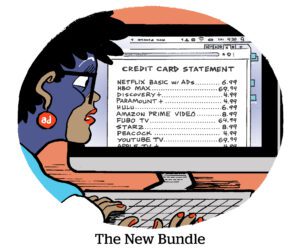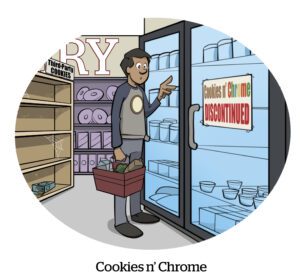Here’s today’s AdExchanger.com news round-up… Want it by email? Sign up here.
Sign Of The Times
The New York Times sued OpenAI and Microsoft in December for using its reporting to train generative AI models. But behind the scenes, NYT has been cooking up generative AI products of its own.
In addition to experimenting with artificial intelligence in the newsroom, NYT is rolling out a tool that uses generative AI to assist with ad targeting, Axios reports. The plan is to recruit brands for a beta test this quarter, then do a general release in the second half of the year.
The product, which NYT built internally, helps advertisers find contextual matches across its portfolio and build new audiences by layering in multiple targeting signals. It will also provide mid-flight optimization recommendations in contrast to NYT’s existing contextual solution, which requires setting pre-bid targeting parameters.
But advertisers won’t be able to use the new tool directly. They’ll have to work with NYT’s ad sales team for access.
In other words, the Gray Lady is developing an AI-driven black-box product. Chalk it up as yet another example of publishers following Big Tech’s lead.
A Quick SKAN
Adoption of Apple’s SKAdNetwork 4 (SKAN 4) has been sluggish.
To be fair, some ad platforms reliably send SKAN 4 postbacks, which are signals that allow two parties to exchange information about an ad exposure tied to a conversion event.
All of Reddit’s postbacks on iOS, for example, are SKAN 4, writes John Koetsier, Singular’s VP of insights, in a blog post citing the company’s internal mobile network data.
The Trade Desk is at 87% SKAN 4 adoption, while Unity and Dataseat are both above 80%.
But just under 20% of all iOS devices are older and running pre-iOS 16.1 operating systems – meaning they’re incapable of accommodating SKAN 4 postbacks. (Guess Redditors all have brand-new phones.)
So, who are the laggards? Google (at 22%) and Meta – but there’s now more to Meta’s story.
Meta peaked at 42% SKAN 4 postbacks last year, per Koetsier, but a bug on Apple’s end hit Meta hard, and its SKAN 4 postbacks dropped to single digits. Meta, in other words, was not using the latest version of Apple’s attribution system, which needs broader adoption to work effectively.
But it looks like Meta has since ironed out the kinks. “On January 24, someone flipped a switch at Meta,” Koetsier writes. Meta’s SKAN 4 postbacks are now up from single digits to above 40%.
It hasn’t been smooth sailing, but this is good news for performance marketers, considering the size of Meta’s network.
It’s also “a sign of renewed confidence in SKAN 4,” according to Koetsier, “despite the fact that Meta has developed its own new modeled measurement capabilities.”
The DMA Fix
Google will enforce major changes to its ad targeting and attribution system in Europe starting in March.
One important change is an update to Consent Mode.
Advertisers and publishers must update their consent collection policies to gain explicit separate approvals for either remarketing or personalization.
Consent Mode v2 has gotten most of the attention, since it’s mission critical for businesses or individuals that operate a website in the EU and run either retargeting and/or personalized ad campaigns.
But another update could be more impactful – though less obviously so.
As Mike Ryan of Smarter Ecommerce writes on LinkedIn, in early March Google will also ask for consent to link or unlink its own services, including ad services, Search, Shopping and YouTube – and it’s not hard to imagine a large number of European users delinking their accounts.
According to a comment in response to Ryan’s post, Google ads product liaison Ginny Marvin noted that delinking would mean more total attributed conversions to Google, since distinct entities (Maps, Search, DV360, YouTube, etc.) will all claim credit.
The remedy for this issue, Search Engine Journal reports, is to adopt GA4, Google’s new analytics suite.
Because when Google loses, Google still wins.
But Wait, There’s More!
But speaking of GA4, a bug has caused data gaps in reports. [Search Engine Land]
Amazon wants a bigger slice of the DSP market. [Digiday]
Google Cloud on “coming of age in the fifth epoch of distributed computing, accelerated by machine learning.” [blog]
The FTC and a group of states are poised to file a lawsuit that would block the tie-up between supermarket giants Kroger and Albertsons. [Bloomberg]
Paramount+ is considering a streaming merger with Comcast’s Peacock. [WSJ]














